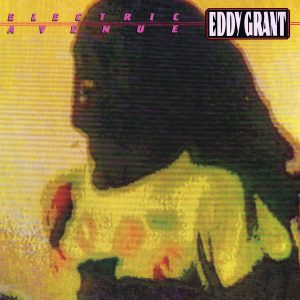Trump’s Tweet Infringed the Song “Electric Avenue”–Grant v. Trump
 This case involves Eddy Grant’s classic 1980s song “Electric Avenue.” The court describes Trump’s reuse of the song:
This case involves Eddy Grant’s classic 1980s song “Electric Avenue.” The court describes Trump’s reuse of the song:
On August 12, 2020, Daniel Scavino, Director of Social Media and Deputy Chief of Staff for Communications of the Executive Office of the President, published a tweet to former President Trump’s Twitter account containing a 55-second video in which the Recording, embodying the Composition, can be heard starting at the 15-second mark and continuing for the duration of the video. Scavino testified that he saw the Video on a Trump supporter’s social media page either on the same day or the day before he posted the Tweet. Scavino also testified that he spoke with former President Trump before posting the Tweet and that former President Trump “let [him] go with [his] instinct on it and post it.”…
The plaintiffs allege that the Video was a campaign video attempting to denigrate the Democratic Party’s 2020 nominee, Current President Joseph Biden. The Video contains an animation of a high-speed red train bearing the words “Trump Pence [Keep America Great] 2020,” in stark contrast to a slow-moving handcar bearing the words “Biden President: Your Hair Smells Terrific.” The handcar is powered by an animated likeness of President Biden, and excerpts of President Biden’s speeches and interviews are played over the Recording.
On Twitter, the repost was liked 350k+ times, retweeted 139k+ times, got nearly 50,000 comments, and was viewed 13.7M+ times. Grant sent a C&D, which Trump ignored. Twitter removed the post after Grant sued.
Trump raised fair use as a defense.
Nature of Use. The “Video has a very low degree of ‘transformativeness,’ if any at all.” The song wasn’t altered (though there was the spoken word supplement), the other video contents didn’t relate to the song, and the song ran most of the video’s length. Even though the video was a political ad, the video didn’t transform the song.
The court also says Trump’s use was commercial because it was made without paying the customary price. (This is a tautology that unfortunately has been revitalized by the Warhol decision). “It is surely true that the use of the copyrighted material has fewer aspects of a “commercial nature” because it is not used for profit, but the lack of a profit motive is insufficient to overcome the lack of a “transformative use” for purposes of the first fair use factor.”
Nature of Work. The song is creative and published.
Amount Taken. Trump conceded that this factor favored the plaintiff.
Market Effect. “there is no public benefit as a result of the defendants’ use of” the song. Furthermore, the “plaintiffs’ ability to license ‘Electric Avenue’ in the market for licensed music for videos—political or otherwise—would be affected by widespread, uncompensated use.”
The court concludes that Trump doesn’t qualify for fair use. Because that resolves all of Trump’s remaining defenses, the court grants summary judgment to Grant on liability. Next up: damages. I assume the damages award will be followed by an inevitable multi-year appeal per Trump’s usual litigation strategy of delaying justice in court and exhausting his opponent. On the plus side for Grant, it appears he will qualify for statutory damages and attorneys’ fees in this case, so Trump’s obstreperousness should inevitably jack up the amount that Trump pays for both sides’ attorneys.
* * *
On the surface, this looks like a disappointing fair use loss in the political context. However, it’s impossible to extrapolate from any Trump ruling to any other future legal decision. Trump is sui generis in most legal doctrines he litigates.
Here, one might have wanted the court to be a little more forgiving on the transformativeness argument given the political context, but the Warhol case largely discourages such grace. The court’s discussion about commerciality, which relied on a tautology, isn’t very satisfying either. At the same time, Trump disrespects everyone else’s interests and certainly was willing to infringe if it would help him score points against Biden; and overall, politicians’ unwanted usage of popular songs as political tools has gotten out of hand and would benefit from some limits.
For me, I’m most stuck on the incongruity of the original song’s substantive meaning and its conflicts with Trump’s attitudes towards the poor and the oppressed. His reuse of the song turns that meaning on its head, essentially constituting yet another cultural appropriation from black to white. Another way of seeing the irony: I’m sure Trump would make the exact same choices again, even if he is ultimately ordered to write a multi-million dollar check to Grant, so long as he could tweak a political rival in the process. Trump’s overall imperiousness and utter disregard for the consequences of his actions are basically what Grant’s song critiqued, a point that is surely lost on Trump (who is notorious for having deficient listening comprehension skills).
Case Citation: Grant v. Trump, 2024 WL 4179057 (S.D.N.Y. Sept. 13, 2024). The 2021 denial of the motion to dismiss, which this decision largely echoes.
